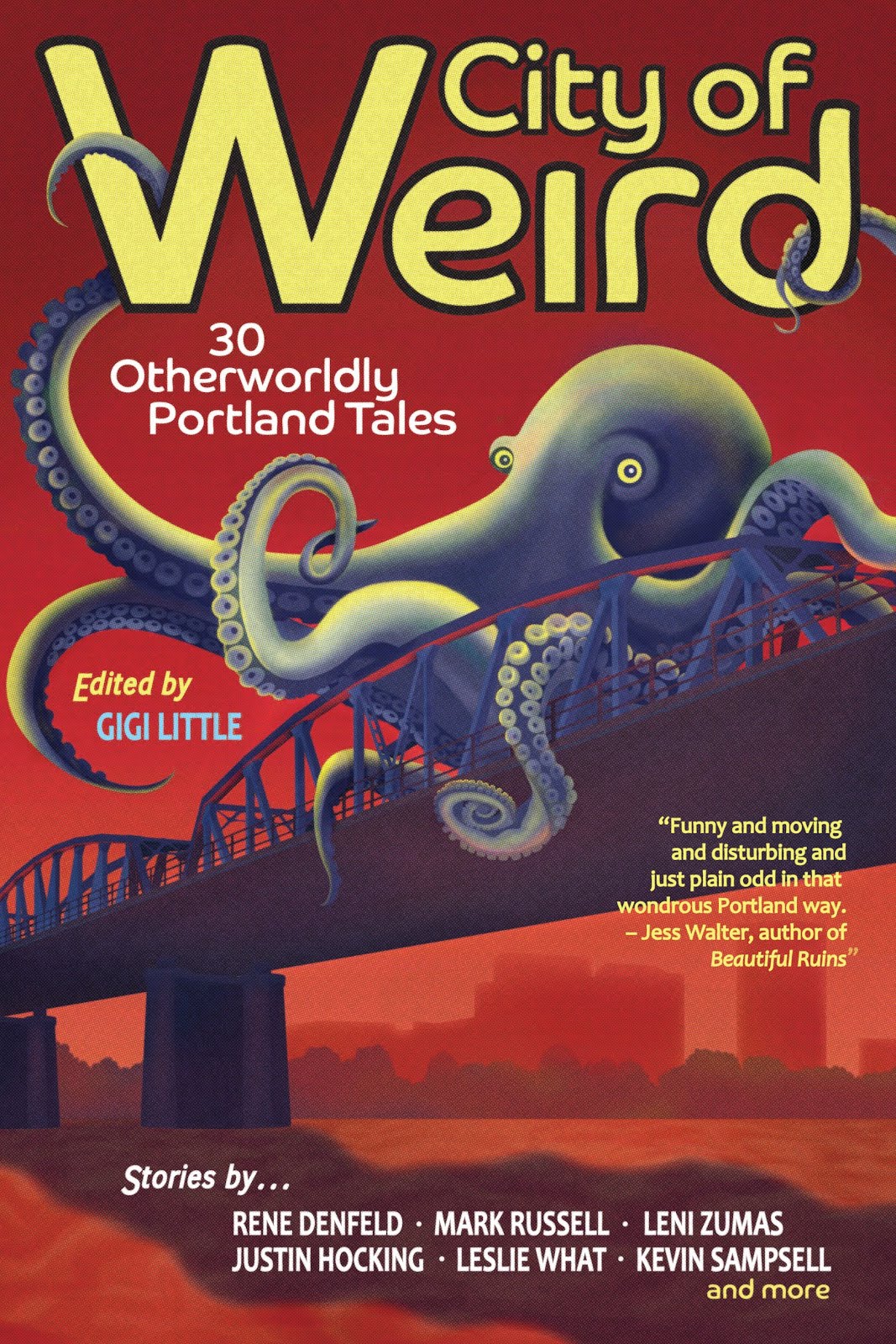Friday night, Stephen and I went to the Gerding Theater to see
A Small Fire on their main stage, and after a
play I always want to write about it, but I don't know how to write about this.
Everything I want to say is one big spoiler. How can I tell you that in this play was the most beautiful and most satisfying BLANK I've ever seen?
I can't. But there's so much about this BLANK I want to talk about. And I know that when I see plays, I like to read the reviews afterward so I can see what different people got out of it. So, I guess I'll do this in two parts. The first part you can read before you see
A Small Fire, but the second you've got to save until after.
What can I say up front? First, that it was not what I expected. Plays put on by Portland Center Stage are always good, but I kind of expected this one to also be enough of a downer that we'd need a pick-me-up afterward. Don't get me wrong - I love a good downer, but I did say to Stephen (or did he say to me?) that we'd definitely need to watch an
I Love Lucy later in the evening. Then, surprisingly, this play about a woman who, because of a ghastly unknown disease, starts to lose, one by one, each of her senses, was really funny. As the disease progresses and the world of the victim, Emily Bridges, her husband John, their daughter Jenny and their work colleague and friend Billy falls more and more apart, this play gets deeper and darker - but no less funny.
 |
Peggy J. Scott as Emily, Tom Bloom as John.
Photo by Patrick Weishampel |
It's also pretty terrifying. You can't help but squirm in your seat a little as you internalize the experience of having your contact and way of interacting with the world taken from you. I thought Peggy J. Scott did a great job of imparting the terror of this while also remaining a fresh and real and, yes, funny character. I loved the mix of her vulnerability and anger. I also really enjoyed Tom Bloom as husband John. He has a particular, slightly Jimmy Stewartesque delivery and the ability to pull off a kind of weak, wishy-washy character without coming off stereotypical.
Those two and their relationship are at the heart of the play. He's a mild-mannered, diplomatic man, she's a brusque, eff-bomb-dropping head of a construction crew. Both keep the world and each other at a bit of a distance, she with her bluff and he with his diplomacy. Both are afraid, in their own way, to completely touch the world. A further complication as their world erodes.
There are moments where you can see the writer in the writing, a slight self-consciousness in the piece - but no more than a lot of plays out there, and definitely not enough to distract from the experience. A revelation in a scene with John and Billy on a rooftop felt a bit convenient - but that scene also contained a moment, a turning point, that was really wonderful.
Overall,
A Small Fire is a strong play with great dialogue delivered by a great cast, a whole lot of humor and a whole lot of heartbreak, along with a whole lot to think about after you leave the theater. If the writing is slightly self-conscious in parts, it's also incredibly deft and smart and gives you way more to think about than just the expected horror of the situation. As unique and isolating as is Emily's illness, where it takes her is somewhere incredibly universal.
OK, let me give the info before the spoilers start spurting out of me. Portland Center Stage's production of
A Small Fire is now playing at the Gerding Theater. It runs through March 23, and more info is
here.
Alright, let's get down to it.
The ending. I've taken a moment and have looked at some other reviews, many for a New York run, of
A Small Fire, and I'm intrigued by how mixed they are about the ending. Some reviewers find it abrupt and say the play feels unfinished. My reaction to
A Small Fire was exactly the opposite. The end felt perfect to me, entirely surprising but entirely fitting. Can I say it now? A sex scene. I'm pretty squeamish about sex scenes in plays and movies - and more so when I'm with my husband, who's even more squeamish than I am. Generally I think to myself, why do I need this? But at the end of
A Small Fire, when Emily is at her most defeated, feeling the most isolated and disconsolate, she and John fall into an embrace that turns into kissing, that turns into lovemaking, and it is, as I said at the beginning of this post, the most beautiful and most satisfying sex scene I've ever seen.
For one thing, it's beautifully executed. The bed and John and Emily are lit in a golden light while the rest of the vast stage is in darkness, alluding to the darkness of Emily's world and the intimacy and magic of the moment. We watch from the end of the bed so that what we see are backs, first John's and then Emily's as, during their elegantly and tastefully choreographed lovemaking, she moves from being on the bottom (the position of submission) to the top (the position of power). Everything about the rendering of this scene is skillful and smart and gorgeous.
We don't know where they will go from here. Because Emily's ailment has been kept a mystery - from the audience and from the victims - there's no way to know if Emily will go on in her current state forever, if that last sense - touch - will finally drop off too, if Emily will die. In this moment, it doesn't matter. Not only has Emily found the path to joy in that one remaining sense, not only have Emily and John found their way back to each other, but, most important of all, I think, these two people who, in their own ways, have always kept the world and each other at a certain distance, completely come together. OK, they're married; they've had sex before. But now all the barriers have come down. The crisis in their lives has stripped away their defenses and left them able, and willing, finally, to share the most authentic intimacy they've ever had.
 One of the things I love about book cover design is how different every project is. For my recent design of The Gods of Second Chances (just out now), I simply mulled the story, themes and setting and then ran with what popped into my brain. With The Night, and the Rain, and the River, though, the project was all about collaboration.
One of the things I love about book cover design is how different every project is. For my recent design of The Gods of Second Chances (just out now), I simply mulled the story, themes and setting and then ran with what popped into my brain. With The Night, and the Rain, and the River, though, the project was all about collaboration.









